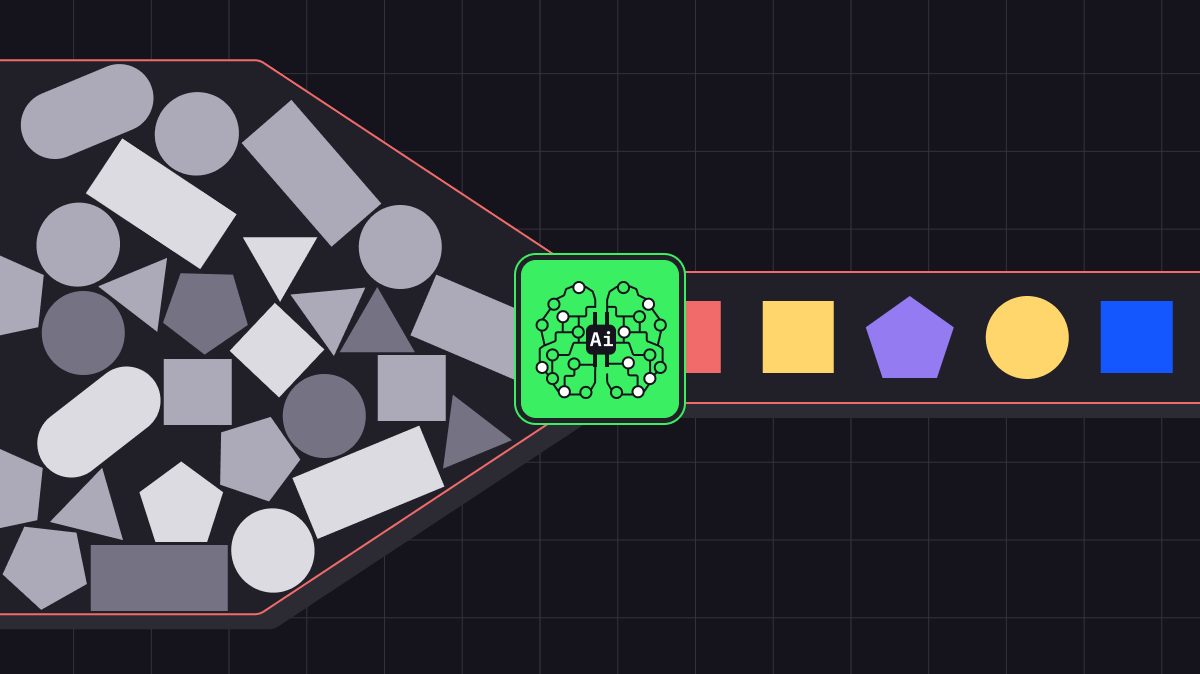The next wave of software automation will be data-driven and agentic; where intelligent systems are able to continuously test, validate, and evolve software autonomously. As we approach 2026, the software development landscape faces a fundamental truth: testing is only as good as the data it runs on.
Yet while organizations race to adopt AI-driven development workflows and autonomous testing systems, they're discovering that the biggest barrier to success isn't code; it's the test data.
The Test Data Bottleneck: Why Traditional TDM Approaches Don't Scale
As an industry, we’ve been getting excited about the promise of AI-powered testing and autonomous development for a few years now. By 2026, more than half of all new testing tools are expected to include some form of AI or machine learning. Agentic AI systems are already revolutionizing QA with self-adapting workflows that autonomously analyze, learn, and optimize test processes. These intelligent agents can now prioritize critical test cases, diagnose failures, and recommend fixes based on detected patterns.
But there's a critical dependency that's often overlooked: all of these AI-driven innovations require continuous access to production-quality, compliant test data.
Legacy test data management approaches built for static, manual processes simply cannot meet the speed, scale, and intelligence (data integrity and production-like quality) required by modern software and AI systems.
The numbers tell the story. Test data bottlenecks still delay 79% of development projects by weeks or months. Manual test data provisioning takes days or even weeks, creating significant delays in development cycles. More concerning, 70% of software defects can be traced directly to data quality issues — inadequate data coverage, missed edge cases, and stale datasets that don't reflect current production realities.
POV: Test Data Automation: The Foundation of AI-Driven Quality Engineering
This is where test data automation emerges as the foundational capability for successful test automation in 2026 and beyond. Test data automation represents a fundamental shift from traditional test data management — moving from manual, time-intensive processes to intelligent, automated provisioning that keeps pace with AI-driven development velocity.
At Synthesized, we've pushed the boundaries of test data management to this next level. Our product is an AI-first test data automation platform that automates the entire test data supply chain: AI-driven generation, provisioning, and masking in one product. One unified platform rather than forcing teams to stitch together disparate point tools to carry out masking or data generation, for example. It's purpose-built for the reality we're in — where continuous testing, DevOps velocity, and AI-driven engineering all fail without continuous, compliant, production-grade test data.
Why Test Data Automation Matters Now
The convergence of several industry trends makes test data automation not just beneficial, but essential:
Legacy Application Modernization at Scale
As organizations migrate to hybrid and multi-cloud deployments, the size and complexity of data estates is growing exponentially. Traditional approaches to copying and masking production data simply don't scale when you're dealing with distributed systems across multiple cloud platforms.
Agentic AI Testing Workflows
Agentic AI systems use predictive analytics and reinforcement learning to select and prioritize high-risk test cases, automate exploratory testing, and detect workflow anomalies that static scripts might overlook. But these intelligent agents need context-aware, production-like data that mirrors real-world complexity — and they need it continuously, not periodically.
Synthetic Data as Standard Practice
Gartner predicts that by 2030, synthetic data will eclipse real-world data for developing AI models. Already, 60% of the data used for AI and analytics projects is synthetically generated. This shift recognizes that synthetic data offers full control over data characteristics, enables fine-tuning for optimal results, and eliminates privacy concerns — benefits that extend directly to software testing.
CI/CD Integration Requirements
Provisioning test data into CI/CD pipelines has become an emerging requirement as automation tools are used to manage test data provisioning, reducing the time and effort to create test datasets. DevOps teams need test data that integrates natively with their workflows, not external processes and workarounds that create friction.
The Synthesized Approach: AI-Native Test Data Automation
Synthesized Platform provides a unified control plane for all test data automations and operations, enabling self-service and trusted production-like test data delivery at enterprise scale.
Here's what makes our approach fundamentally different:
AI-Native Architecture Designed for Automation
Unlike traditional test data management tools that rely on cumbersome masking and subsetting, the Synthesized Platform leverages advanced AI to create high-fidelity synthetic test data that maintains referential integrity and complex relationships. Our AI-powered engine automatically discovers, models, and generates complex datasets — cutting data provisioning time by up to 90%.
This isn't just faster masking; it's intelligent generation. The platform automatically discovers and categorizes sensitive data across complex database schemas, applying appropriate privacy protection without manual configuration. Teams can instantly provision compliant test environments, clone, scale and refresh test datasets within minutes, not weeks.
Production-Quality Data Fit for Testing Complexity
One of the critical challenges facing AI-driven testing systems is ensuring comprehensive test coverage. AI agents that perform predictive error detection and autonomous test execution need data that reflects real-world complexity — including edge cases and unknown scenarios.
The Synthesized Platform generates unlimited volumes of realistic, production-lookalike test data that guarantees referential integrity across complex database relationships. This ensures comprehensive test coverage and realistic edge cases that would be impossible to obtain through traditional subsetting approaches. The result: AI testing systems can detect potential issues before they impact production, with the confidence that tests run on truly representative data.
Privacy by Design for Regulatory Confidence
With average GDPR fines reaching €2.36 million per violation, the compliance risks of using production data copies are simply too high. The Synthesized Platform eliminates data breach risk by generating entirely synthetic test data that preserves statistical properties while removing all personal information.
Built-in GDPR, CCPA, and HIPAA compliance is automated into every workflow — not as an afterthought, but as a fundamental design principle. This "privacy by design" approach means teams can accelerate testing velocity without increasing regulatory exposure or audit complexity.
DevOps-Native Integration
The platform is purpose-built for CI/CD pipelines with native API support and YAML-based "data as code" configurations. This developer-friendly approach democratizes test data creation, eliminating the need for specialized TDM expertise while enabling version control and GitOps integration. On-demand self-service provisioning capabilities allow testing teams to provision data subsets on demand, without relying on IT or database administrators, and without overwriting other testers' data. Combined with the ability to roll back test data to prior versions for regression testing, this creates true continuous test data availability.
The Business Impact: Velocity, Quality, and Trust
Organizations implementing test data automation with the Synthesized Platform achieve transformative results:
- 70%+ faster development cycles through AI-powered test data generation that delivers production-grade test environments in minutes
- 99% storage savings by eliminating the need for full physical database copies
- Zero PII exposure and continuous compliance with data protection regulations
- 40-60% faster deployments enabled by automated test data provisioning that keeps pace with accelerated release cycles
- Comprehensive test coverage that identifies bugs earlier in the development cycle, leading to more stable releases
But the benefits extend beyond metrics. Test data automation transforms data from a blocker into a foundation for innovation. It enables the shift-right testing strategies where QA continuously monitors production data and derives new tests from real user activity. It supports the AI-managing test suites that analyze code updates, provision environments, and classify errors without human intervention.
Looking Ahead: The Data Layer for AI-Driven Software Quality
As we move into 2026 and beyond, the software development landscape will increasingly be defined by AI agents that autonomously test, validate, and evolve applications. In this future, test data automation isn't optional — it's essential. Synthesized provides the essential data layer for this future — the platform that ensures production-quality, context-aware test data is continuously available for every test, every pipeline, every AI agent.
The question isn't whether your organization will adopt test data automation. It's whether you'll do it now, positioning yourself to fully leverage AI-driven development, or later, after competitors have already realized the velocity and quality advantages.
Continuous testing, DevOps excellence, and AI-driven engineering all demand continuous, compliant, production-grade test data. The organizations that recognize this reality — and implement test data automation as a strategic capability — will define the future of software quality.









